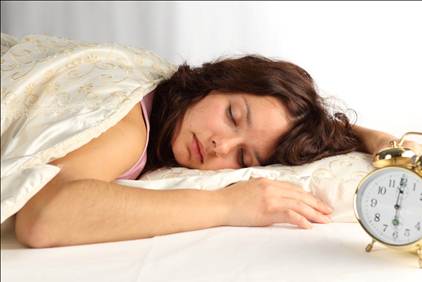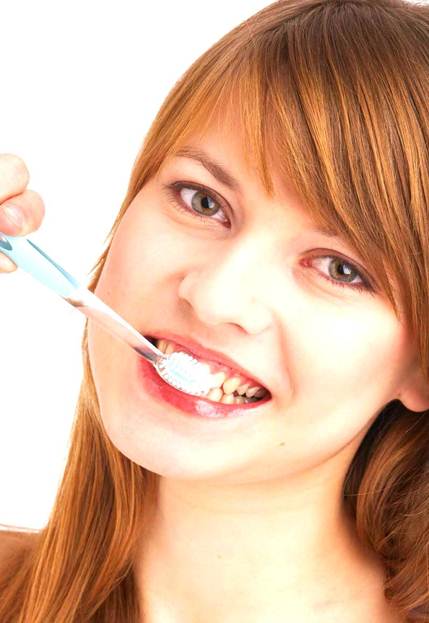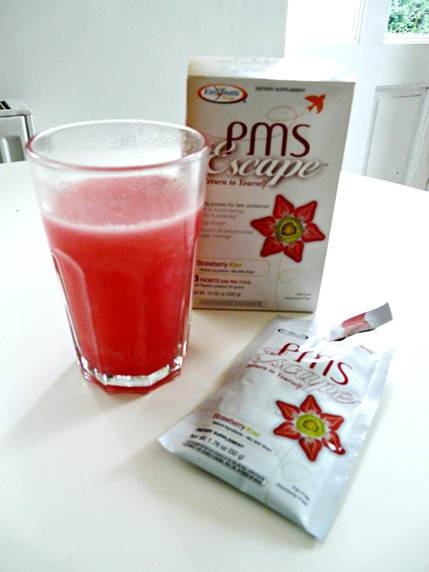Arm yourself with knowledge!
No snooze, you lose

In our 24/7 culture, there are more temptations than ever to
stay up late. But considering sleep is absolutely essential for health and
normal functioning, it’s important to get adequate shuteye. Also, it’s called
beauty sleep for a reason! Swedish research took photos of women when they were
well rested and then again when they were sleep deprived. Strangers asked to
rate the images found the well-rested shots more attractive!
Being happy…isn’t just all in the mind. Those good feelings help physical
health too.
Studies show that a positive attitude benefits physical
health and longevity – and not just our mental and emotional health, according
to David Hamilton, author of How Your Mind Can Heal Your Body (Hay
House). Here are just five health benefits to being happy. For more, go to
drdavidhamilton.com
- Counting blessings aids mental health. Warm
feelings of gratitude produce more of the chemical dopamine in the
cerebral frontal cortex of the brain, causing us to feel happier.
- Being positive is good for the heart. Optimists
aren’t as stressed during typical daily challenges and overcome negative
events faster, putting less stress on the cardiovascular system, says
Hamilton.
- Happiness aids the immune system. Being down is
associated with an increase in the chemical norephinephrine, which reduces
immune system response.
- Smiling helps us live longer. Research shows that
people who genuinely smile (using the muscles besides their eyes) are 20
percent more likely to live past 80 than those who don’t.
- Happiness is the best medicine. One study found
that those who were more positive got less sick and recovered faster. This
is thanks to immunoglobulin A, a chemical that’s released when we feel
good that also helps us bounce back from illness.
A web of support
Caring for a child with autism is one of the most
challenging tasks for parents around the world. A new website called
MyAutismTeam.com allows for parents of autistic children to connect and share
their concerns, personal stories and questions.
“Our mission is simple,” says founder Eric Peacock. “When
you or a loved one is diagnosed with autism, it should be easy to find the best
people around to help you. You should be able to find other parents who’ve been
in your shoes.”
According to Autism South Africa, one child in every 150 has
an autism-related disorder. For parents of autistic children who feel their
friends can’t relate to their experiences, this site is a wonderful and
supportive forum that allows parents to feel understood and encouraged.
A clean sweep

When brushing your teeth, you invariably follow the same
pattern – say, from upper left to lower right.
Unfortunately, since most of us tend to start out stronger
then ease off, that means one or two sections of your mouth end up getting a
more thorough cleansing than the others, says dentist Lou Graham. Solve the
problem by simply charting a different course in your mouth each time you
brush. And to really go for the gold (or white), swap your manual toothbrush
for an electric model. “They pulse and oscillate up to 40,000 times per
minute,” he says, “which makes them much better at removing plague and
bacteria.”
But oral hygiene means more than pristine pearly whites –
teeth and gums are an indicator of your body’s wellbeing. New evidence links
gum disease to everything from diabetes to a 30 percent higher chance of heart
problems. Gum disease is an indicator of overall poor health, and these three
warning signs should never be ignored.
- Blood on your toothbrush: A sign of Gum disease that is
too often ignored. If you see any sign of blood, make an appointment with
your dentist today.
- Persistent ulcers: These can be a sign of oral cancer,
which affects 20 percent more people now that it did 30 years ago. Get it
checked out.
- Pain: Whether in your teeth or your whole jaw, don’t leave
it until it gets worse. It may be a sign of tooth decay or teeth grinding,
also known as bruxism.
Did you know? If you need a refreshing night’s sleep for a
big day ahead, don’t drink alcohol – at all! New research shows that even one
drink (and yes, that includes that after-work glass of white) switches on part
of the nervous system that stimulates us. This raises our heart rate as we
sleep, and switches off the “rest and digest” part that should be more dominant
at night.
PMS FYI

When PMS becomes more than a monthly nuisance, it may be
time to seek medical attention.
For some women that time of the month may have just become
more manageable. A new study in the journal Obstretrics & Gynecology shows
that antidepressants can help treat symptoms of PMS.
According to Dr. Sascha Edelstein, a gynaecologist and SHAPE
advisory board member. “Most women experience symptoms related to their
menstrual cycle. But for a small group of women these symptoms are severe and
impact on their quality of life, interpersonal and professional activities.”
For these women, antidepressants have been proven to be
effective in reducing symptoms of tension, irritability and dysphoria
(depressed mood). While this treatment is best for women who experience both
physical and psychological symptoms, others should consider less drastic
remedies, like painkillers, diet changes and exercise.
Don’t stay at home, Mom!

If you’re considering becoming a stay-at-home mom, it’s time
to think again. A new study published in the Journal of Family Psychology shows
that working mothers are happier and healthier than mothers who stay at home.
Research found that mothers with young children who work
full- or part-time are less depressed, experience better health and little
conflict at work and at home. Stay at-home moms can be isolated and are more
likely to become depressed and experience more stress when they’re at home with
their young children all day.